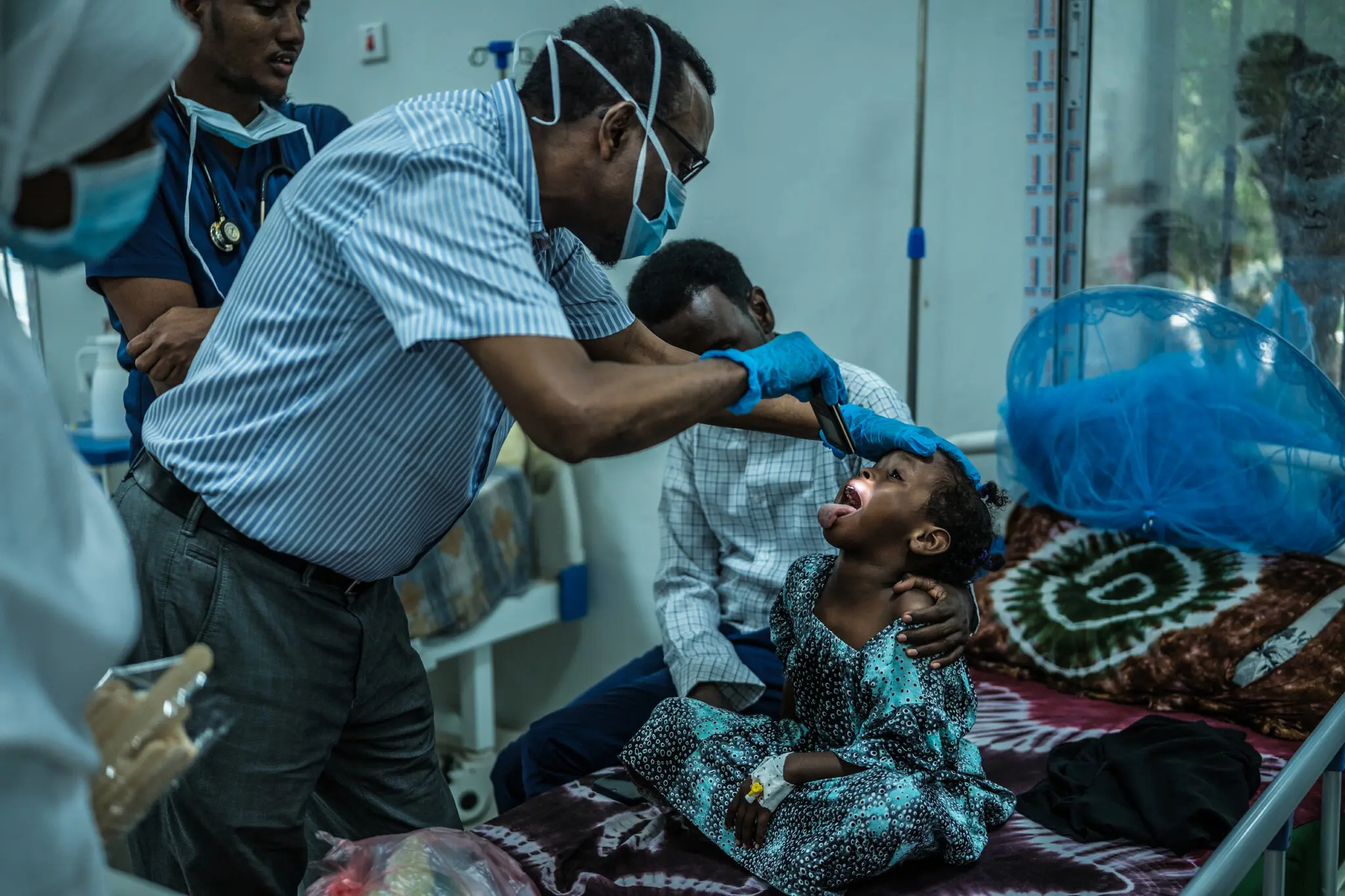Somalia is facing a devastating resurgence of diphtheria — a deadly but preventable disease — as weakened vaccination systems and shrinking international aid collide to create a public health emergency. Health officials warn that the country’s fragile healthcare network is struggling to contain the outbreak, which has already claimed dozens of young lives.
A Rapidly Escalating Outbreak
In 2025, Somalia has reported more than 1,600 suspected cases of diphtheria, resulting in nearly 90 deaths — almost double the total number of cases recorded the previous year. Most of the victims are children under the age of fifteen, particularly those living in overcrowded camps or remote rural regions where vaccination services are sparse.
Hospitals in Mogadishu and regional towns have seen a sharp increase in admissions, with medical staff warning that limited supplies of antitoxin and antibiotics are making treatment increasingly difficult. The rise in infections began early in the year and has continued to spread, overwhelming already strained health facilities.
Causes Behind the Surge
Health experts point to a combination of factors fueling the crisis:
- Falling vaccination rates: Less than half of Somali children have received the full course of diphtheria-containing vaccines, leaving large sections of the population unprotected.
- Interrupted immunization programs: Ongoing conflict, poor infrastructure, and funding cuts have forced mobile health teams to halt operations in many areas.
- Shrinking donor support: Several major international aid agencies have reduced funding for Somalia’s health sector, leading to clinic closures and vaccine shortages.
- Humanitarian pressures: Drought, displacement, and malnutrition have worsened living conditions, making communities more susceptible to infectious diseases.
These overlapping crises have eroded decades of progress in disease control, creating conditions ripe for the return of illnesses once thought nearly eliminated.
Global Health Implications
Public health officials warn that Somalia’s diphtheria outbreak is a reminder of how quickly preventable diseases can resurface when healthcare systems falter. Similar trends have been observed in other regions facing instability and underfunding, where “zero-dose” children — those who have never received any vaccine — remain vulnerable to multiple infections.
Experts fear that the outbreak could spread beyond Somalia’s borders, given the high level of movement across East Africa. Neighboring countries are being urged to strengthen vaccination campaigns and border health checks to prevent cross-border transmission.
Urgent Call for Action
Somalia’s health authorities, in collaboration with international partners, are launching emergency immunization drives aimed at reaching unvaccinated children. However, they stress that without renewed funding and long-term support, these efforts will be difficult to sustain.
To prevent future outbreaks, experts emphasize three immediate priorities:
- Boost vaccine supplies and rebuild distribution systems to reach remote communities.
- Restore donor funding to ensure continued operation of rural clinics and mobile health units.
- Address underlying conditions such as malnutrition, poor sanitation, and unsafe water sources that worsen disease transmission.
A Preventable Tragedy
Diphtheria is a disease that modern medicine knows how to stop — yet in Somalia, it is once again claiming lives. The resurgence is not just a story of germs and vaccines, but of fragile systems, forgotten funding, and the global consequences of neglecting public health in vulnerable regions.
Unless the world acts quickly, experts warn that the current outbreak could be a harbinger of more preventable epidemics to come.















Leave a Reply